Maran was born in Attleboro the younger of two children. His father was Jacob C. Maran, born 1899 as Agop Marangossian; he
was an Armenian from Smyrna (now Turkey) who spoke seven languages fluently.
He was a jeweler and was naturalized in 1923. Maran did not remember him much as he left when he was seven years old.
His mother, born Persis M. Weeman in about 1903, gave piano and voice lessons.
His great grandfather, Orin Weeman (born about 1844), and grandfather, Walter O. Weeman (born about 1863) were well-known violin makers
from America's oldest violin making family at the time. It was the musical influence of his grandfather Weeman and his
mother that started Maran on his path.
When Maran was seven, he won an award as boy soprano. He sang in church choirs on the East coast. He studied voice with
Ruth Streeter in Boston.
At age 20 Maran joined the Harvard Glee Club. He met Leonard Bernstein sometime between then and his graduation.
He heard me at one or more of my concerts and liked my voice, Maran said. In the same way Maran met Paul Hindemith,
also through attending his lectures. Maran graduated from Harvard University in 1948.
After finishing Harvard, Maran studied voice with Merle Alcock in New York. He then performed
in the USA as concert and radio singer.
On September 15th, 1950 Maran married Edith Engel (born January 22nd, 1924 in Vienna); she was studying medicine at Tufts College.
She was a Jewish refugee who fled with her family in 1939 at the age of 15 to England and later to the US. They had two children:
Elizabeth Ann (Elisha) born June 1st, 1952 in Salzburg (later living in England), and Joseph born in Frankfurt am Main on September 6th,
1957 (later a professor of archaeology at the University of Heidelberg).
In late 1950, the Marans moved (in large part through arrangements made by Edith Maran) to Salzburg, they lived in the family house
of Herbert Feuerstein (then age 13). Maran studied church music under Domkapellmeister Joseph Messner; Mozart operas under professor
Bernhard Paumgartner; and sang in the Salzburg Cathedral (Salzburger Dom) as solo tenor for five years.
In 1954 Feuerstein wrote three Dehmel-Gedichte (text by Richard Dehmel) songs for him. The songs themselves were first publicly
performed at Maran's 80th birthday celebration at Staatstheater Darmstadt with Feuerstein himself playing the piano.
Maran sang at the Salzburger Festspiele from 1952 to 1971, mainly as soloist in church music by Mozart.
He first drew international attention when he won the Mozart-Medaille from the Mozarteum International
Foundation in Salzburg in 1956 on Mozart's 200th birthday.
In 1956, he toured with the Salzburg opera company through Europe in La finta semplice conducted by Bernhard
Paumgartner, and he also sang Fracasso in La finta semplice, still in 1956, at the Salzburger Festspiele.
The same year, and the next forty years thereafter, he was a soloist at
the opera in Darmstadt (1956–1996).
Maran made his debut in Darmstadt
with the premiere of Mozart's La clemenza di Tito in the title role. In 1996, Maran
received the Ehrenmitgliedschaft from Staatstheater Darmstadt. In 1970,
Maran had a great success as Nerone in L'incoronazione di Poppea.
In 1983, he was admired as Idomeneo. In 1983, Maran took part in the world premiere of
Die Fastnachtsbeichte by Giselher Klebe.
Even so, he continued singing all over Europe and the United States, the world premiere of A
midsummer night's dream (with Benjamin Britten conducting) as a prime example.
A midsummer night's dream was first performed on 11 June 1960 at the Jubilee Hall, Aldeburgh, UK as part of the Aldeburgh Festival.
Maran sang the role of Lysander.
Maran is fond of saying that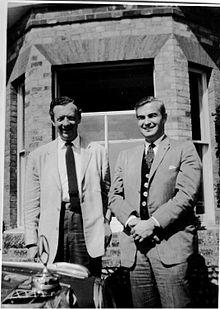 Britten wrote the part for him, which to a certain degree is true, since Britten asked Maran to
sing the part after hearing his voice and Maran was in on the final production preparations. He has many memorys of his time at
the Red House. Maran also sang in Aldeburgh in 1959 in The rape of Lucretia.
Britten wrote the part for him, which to a certain degree is true, since Britten asked Maran to
sing the part after hearing his voice and Maran was in on the final production preparations. He has many memorys of his time at
the Red House. Maran also sang in Aldeburgh in 1959 in The rape of Lucretia.
He had a wide-ranging and varied
repertory as soloist in opera, operetta, oratorio, and on the concert stage.
Maran made guest appearances in Frankfurt, Hamburg, Zürich, Amsterdam, and festivals, such as Holland, Strasbourg, Schwetzingen,
Kranichstein, ...
His operatic repertory included:
? (Lo sposo deluso), ? (Apollo and
Hyazinthus), Fracasso, Tito,
Herodes, Pinkerton,
Belmonte, Boris (Kaťa Kabanová),
Lysander, Aschenbach, ...
He recorded:
Philips (Mozart records fron Salzburg, including La finta semplice)
Decca (Messiah conducted by Adrian Boult, Elias conducted by Josef Krips)
Maran died, aged 85 in Darmstadt, on November 26th, 2011, from heart
and cardiovascular disease.
Reference: Kutsch & Riemens
Reference
Darmstadt character-tenor George Maran is dead
The likeable art ambassador was almost 40 years in the Darmstadt ensemble.
When George Maran ended his active career, he just changed sides. With his distinctive tenor, he was one of the most loyal singers of
the Darmstadt Regional and State Theater, he was an honorary member. From 1995, he became its most loyal visitor: not only in premieres,
but in many performances was his distinctive white-haired head recognized in the front rows. Therefore, many opera fans were worried
about his health, as the visits became less frequent in recent years. On Saturday, the singer died at the age of 85 years in Darmstadt,
as announced by his family. He died of a heart and circulatory disease that had been with him for decades.
The American tenor, who came from a luthier family, was born in 1926 in Massachusetts, and already as a seven year-old, he
was an asset for the boys choir. In Boston and New York, he trained as a singer in the early fifties, and moved to Europe,
encouraged by his Vienna-born wife Edith. First Maran sang in Salzburg, where he continued his studies with Joseph Messner,
Director of Music.
In 1956 he came to the Darmstadt State Theatre.
From his debut with Mozart's "Titus", he was an asset.
In collaboration with the then opera director Harro Dicks, he trained not only as a singer but also
perfected his acting talent.
There was a special artistic communion with the conductor Hans Drewanz who brought out his talent and let him grow – Maran had no
fear of new pieces, and he was even a driving force of the Monteverdi renaissance, which began in Darmstadt before the composer
came back into fashion. Maran, who had been singing Monteverdi in the U.S., helped Drewanz to enforce the unfamiliar sounds.
The culmination of their collaboration was probably Britten's opera "Death in Venice" (after Thomas Mann), directed in 1980 by Kurt Horres:
through the intense depiction of Aschenbach by George Maran, it became an extraordinary event.
Many theatergoers will associate Maran with this role. Directors came and went, Maran stayed. The Darmstadt audience that
remembers details of past performances to this day, is obliged to artists such as George Maran, who brought not only cheerful figures on the stage,
but also the required seriousness.
He sang Eisenstein in "Die Fledermaus" and Herodes in "Salome", Lysander in "A midsummer night's dream", which Benjamin Britten composed for
him, Pickering in "My fair lady", and particularly Stjerbinski in Giselher Klebe's "Jacobowsky and the Colonel".
His always focused, light-colored tenor, unfailingly audible in piano sound, is the center of his characterization: one could heard through his voice
what the roles interpreted by Maran felt. Only few singers succeed in uniting stage presence and musical interpretation.
He was a singer-actor, who believed more in the authentic effect than in the mere beauty of sound.
He always gave the the feeling of having mastered his roles intellectually.
Apart from his exceptional artistic performances, he was a warm, friendly ambassador for the more difficult works.
At the same time, he gave the ensemble a human heart. Probably no singer was committed to
Darmstadt so long, none was so closely associated with the post war theatrical history of this city.
Reference: article in Darmstädter Echo
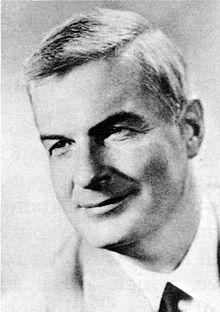
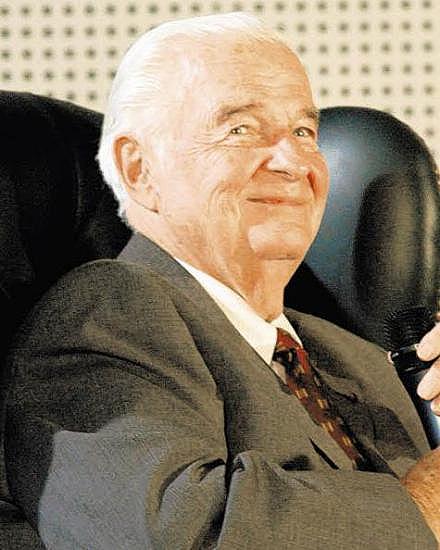
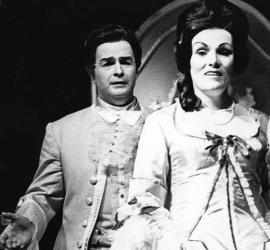
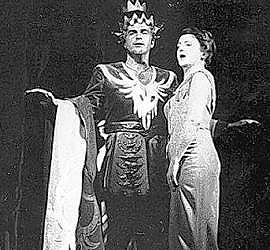
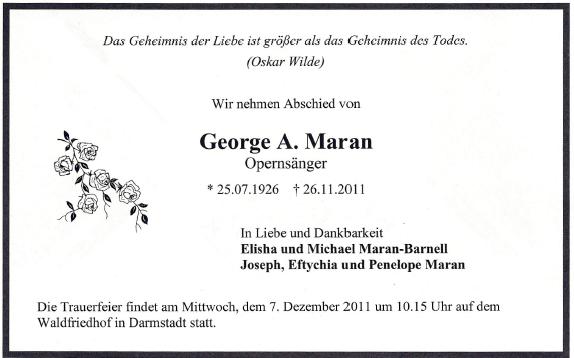
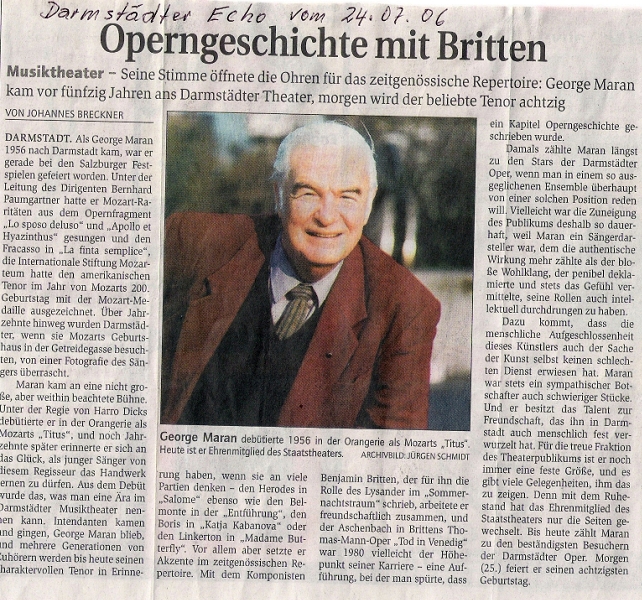
 Britten wrote the part for him, which to a certain degree is true, since Britten asked Maran to
sing the part after hearing his voice and Maran was in on the final production preparations. He has many memorys of his time at
the Red House. Maran also sang in Aldeburgh in 1959 in The rape of Lucretia.
Britten wrote the part for him, which to a certain degree is true, since Britten asked Maran to
sing the part after hearing his voice and Maran was in on the final production preparations. He has many memorys of his time at
the Red House. Maran also sang in Aldeburgh in 1959 in The rape of Lucretia.